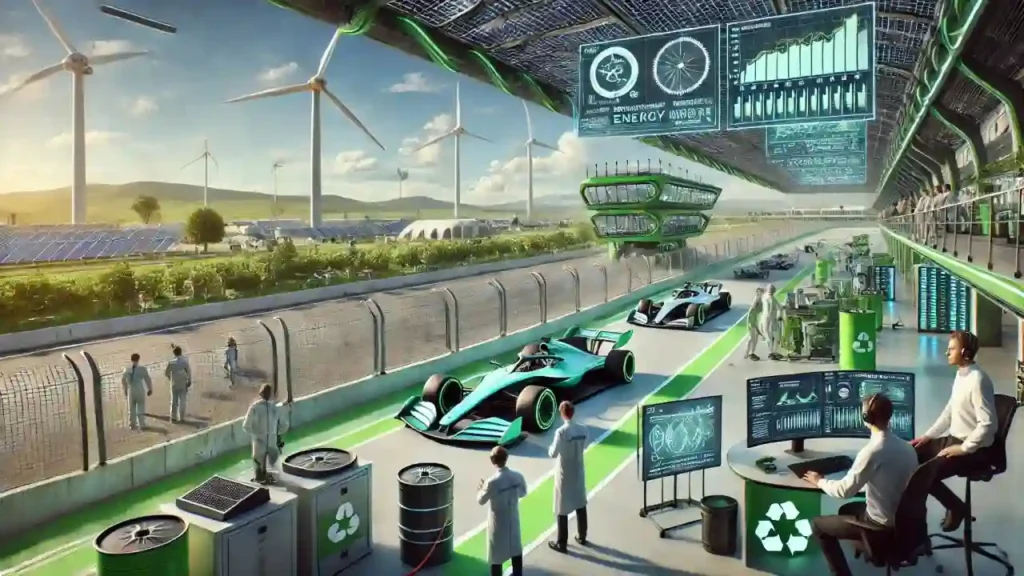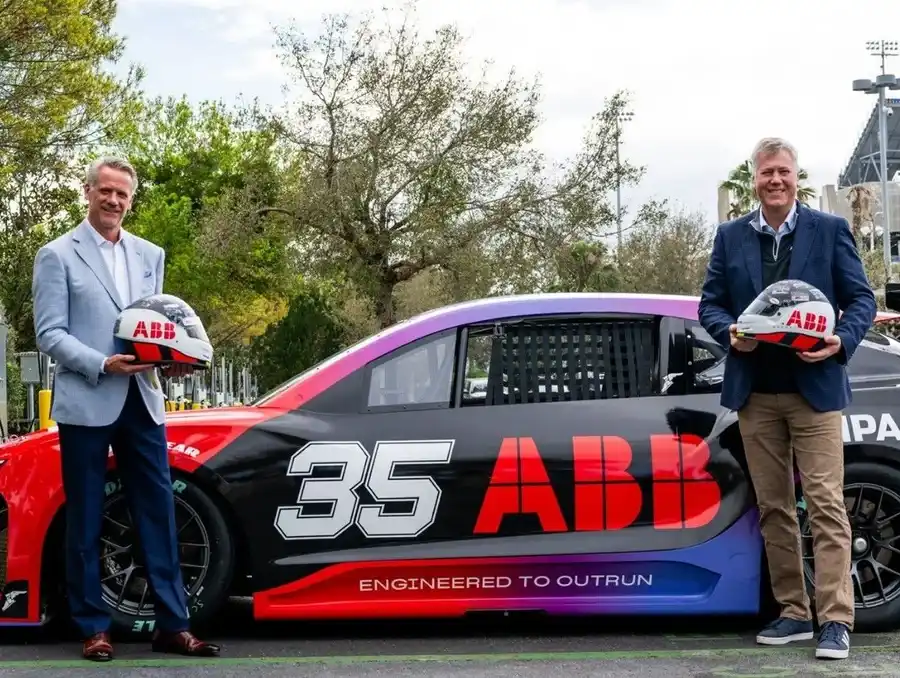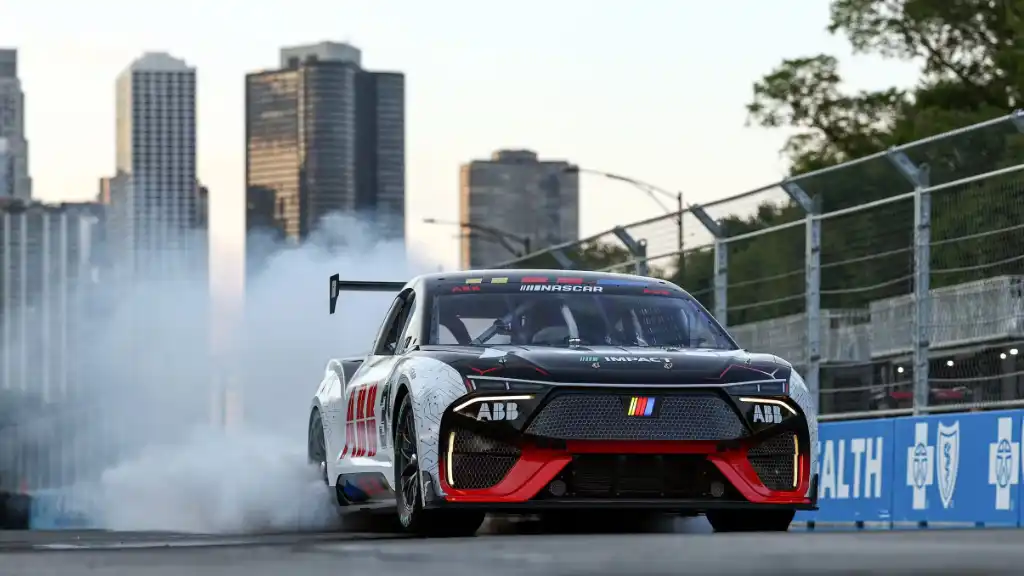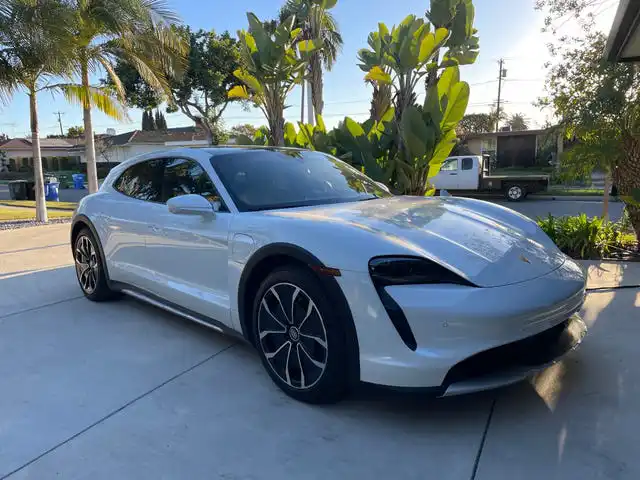Can F1 return to V10 engines? Well it depends, and in this week’s Sustainable Motorsport Roundup I look at the possibilities of whether it may happen. Or not. I also look at NASCAR’s solution to food waste, why Mercedes F1 is planting trees and riding onboard a sustainably fueled Ford Mustang Darkhorse with Top Gear’s Richard Hammond.
Sustainable Motorsport News

When a sellout crowd of over 105,000 spectators attend the 67th Daytona 500 at Daytona International Speedway, there is plenty of food waste left behind. NASCAR, Daytona International Speedway and its food provider Levy are doing something about that by teaming up with Denali.
It’s part of NASCAR IMPACT’s Sustainability Strategy, a program that is expected to recycle nearly 80,000 pounds of food waste estimated at the week’s races leading into the 67th Daytona 500 that was run on Sunday, February 16. Forbes has more details on how the program works.

Matthew Campelli at the Sustainability Huddle talks about the partnership between Williams Racing and Atlassian and how it is an underdog story we should all support.
“Naturally, Williams and Atlassian’s partnership will centre on technology, innovation and performance. But those things don’t exist in silos. Given that Atlassian ranks higher than 98% of its industry peers on sustainability (according to DitchCarbon), bringing some of that expertise into F1 would be a win – not just for Williams, but for the sport as a whole, which has ambitious net zero targets.”
Read his thoughts on the partnership here.

Mercedes-AMG PETRONAS F1 has partnered with Chestnut Carbon to restore 200 hectares of land, planting 260,000 trees to offset emissions and boost biodiversity
A typical passenger vehicle emits 4.6 metric tons of CO₂ per year, or roughly 400g of CO₂ per mile. To help tackle these figures, leading automotive company Mercedes is joining forces with Chestnut Carbon – a nature based carbon developer.
The Mercedes-AMG PETRONAS F1 Team’s collaboration will support high quality carbon removal projects across the Southeastern United States. Go here for more information.

Ambipar, a global leader in environmental solutions, has announced its partnership with Scuderia Ferrari HP as Official Sustainability Partner. This collaboration, formed on the basis of a rigorous evaluation process, unites two global leaders committed to advancing sustainability.
As an innovator in environmental solutions, Ambipar specializes in decarbonization, circular economy initiatives, energy transition, and environmental regeneration. Meanwhile, Ferrari has pledged to reduce emissions, aiming to achieve carbon neutrality by 2030.
Tercio Borlenghi Junior, CEO of Ambipar, comments: “We are thrilled about this partnership, which highlights Ferrari’s dedication to CO₂ reduction and its ability to inspire others to take action. With our extensive expertise, we aim to support Ferrari’s sustainability efforts.”

Carbon Positive Motorsport have been active in two rallies recently.
Underscoring their commitment to promoting sustainable practices within the motorsport community, rally organizers recently offset an estimated 18 tonnes of CO₂ emissions for the Riponian Stages Rally, held on 9th February 2025.
Meanwhile, the Beverley and District Motor Club offset the carbon emissions for the 164-strong field at the East Riding Stages Rally using Carbon Positive Motorsport’s offsetting services for the fourth running of the event. The East Riding Stages Rally offset their unavoidable emissions by 200%, with 40 tonnes of CO2 emissions offset immediately via Carbon Reduction Units (CRU’s), and an additional 40 tonnes to be offset in the future using Pending Issuance Units (PIU’s).
Sustainable Motorsport Tech

Maja Czarzasty-Zybert looks at green engineering in motorsport and how racing technologies are driving the clean energy revolution. “Motorsport has long been associated with the roar of internal combustion engines and the burning of vast amounts of fuel. Today, however, priorities are shifting. Formula 1 , the FIA World Endurance Championship and Moto GP are pioneering new fuel technologies that could replace conventional gasoline and diesel.”
You can read her look at these exciting developments here.

Sustainability Magazine looks at the ABB & NASCAR’s EV prototype that debuted as a pace car at the 2025 Daytona 500 which is part of NASCAR’s efforts to electrify its operations and become more sustainable. Morten Wierod, CEO at ABB, says: “We are very proud to be working with NASCAR to decarbonise its operations as it seeks to achieve net zero operating emissions by 2035. You can read what they are working on here.

In the video above, Richard Hammond, former Top Gear and The Grand Tour host and major Mustang fan, does a test drive of a track-ready Ford Mustang Darkhorse and uses P1 Fuels so that there are zero emissions.

The latest issue of Historic Racing & Technology has a feature on the use of sustainable fuel in a 90-year-old Austin Seven. “Fuel up: Chris Pickering takes his 90-year-old Austin Seven up Prescott’s legendary hill climb to test out the latest sustainable fuel from Coryton”
You can buy your copy here.
Sustainable Racing

Hyundai’s Ioniq 5 N TA has set a new lap record for an EV at the ‘Attack Tsukuba 2025’ motorsport event in Japan, held on February 15. Hyundai N entered the event with the Ioniq 5 N TA (Time Attack) Spec, driven by renowned Japanese professional driver Nobuteru Taniguchi.
The Ioniq 5 N TA Spec is a motorsport variant of the Ioniq 5 N, and previously took victory at the 2024 Pikes Peak International Hill Climb (PPIHC) in the modified production electric SUV category, setting a new record in the process.
PMW has all the details.
Series News

It started with Formula 1 CEO Stefano Domenicali, has been brought up again this week by FIA president Mohammed Ben Sulayem and supported by Red Bull’s Christian Horner. What am I talking about? It is the idea that Formula 1 could revert to internal combustion engines in 2030 running on sustainable fuel.
Now, I tend to be in the “red meat” camp where I think the only reason Ben Sulayem has brought this up is in light of the booing that the FIA received at the recent F1 75 event last week. But this is not new and has in fact been discussed before, and right here in the digital pages of News Racers Can Use back in 2021.
In my column back then, I highlighted the thoughts of Mario Ilien of Ilmor fame, who argued that if the engines are already green by running sustainable fuel, what difference does it make if they are internal combustion or not? The countering argument to his point would be that no major automotive manufacturer would sign on to support such a move as this direction would not be relevant to their business of selling cars.
A simple response to this argument would be to let the manufacturers go and revert to dedicated race engine manufacturers. It would mean that F1 would no longer be beholden to automotive manufactures and the need to be road relevant and could focus strictly on motorsport. I even provided a list of race engine manufacturers in my column. This argument also ignores the potential of liquid hydrogen, something that is already being looked at and covered here in the Sustainable Motorsport Roundup and is being researched by a number of these very same automotive manufacturers. And these engines would be loud.
Do I think that this is a direction that Formula 1 might pursue? Probably not, but it bears looking at. My preferred choice would be a more flexible approach to engine technology, much like what is being used in European Truck Racing. Let teams determine the technology powering their engines, subject to a cost cap, and may the best technology win.
So while at first blush, the answer to my headline would be no, on further reflection the answer could actually be “why not”? Definitely food for thought.
- FIA president thinks F1 should consider return to V10 engines on e-fuels (Autosport)
- Should F1 weigh up FIA president’s return to V10 engines idea? Our writers have their say (Autosport)
- Horner adds support to return to V10 engines in F1 (Autosport)
- Sustainable Motorsport Round-Up for July 26, 2021 Part 2 – The Future of Formula 1 Engines, Small Steps and more (Motorsport Prospects)

Steven Cole Smith at Hagerty looks at NASCAR’s sustainability strategy and the series plans to go carbon neutral in 10 years. But he wonders, have they already started?
“Given the near-identical nature of the three NASCAR EV Prototypes, it’s obvious that something is afoot, though Eric Warren, executive director of global motorsports competition for General Motors, says change is not that imminent. “While we will continue to race our proven and winning V-8 technology in NASCAR for years to come, we continually look for ways to improve the combination of power, durability, and efficiency to transfer learnings from the racetrack to the showroom, especially as we bolster Chevy’s consumer EV lineup,” he said.”
Read his full article here.

Motor Sport Magazine explains why Formula E is a proper tech lab for sustainable technologies. “Remarkably, the Jaguar I-Type 7 will receive as much charge in that 30-second Pit Boost as an all-electric road car would receive in 30 minutes from a domestic 7kW charger. That’s quite a message to spread right now.” Read more here.

Writing in Forbes, Vitas Carosella explains how the E1 electric boat racing championship is setting out to prove that sports can be fun as well as provide climate solutions.
“Rodi Basso founded E1 to help find technical solutions to aquatic mobility and to raise awareness about declining marine ecosystems. He is using E1 to ensure future generations can continue living in coastal areas and enjoying exciting sports events like they currently do. He says, “Honestly, I feel the responsibility to keep providing entertainment in a responsible way.””
Read the full article here.
Getting to the Track Sustainably

- Supersonic flight is back. But can it make money? (Quartz)
- Sustainable aviation financier SkiesFifty invests in US waste-to-SAF venture and ocean carbon removals (GreenAir News)
- ZeroAvia To Deliver Electric Propulsion for Jetcruzer 500E (AIN)
- EBAA Demands Clear Plan for SAF Book-and-claim in Europe (AIN)
- New Spark and Norsk e-SAF projects focus on low-cost renewable energy (GreenAir News)
- ICCT urges stricter international CO2 standard for aircraft as fuel efficiency gains stall (GreenAir News)

- Why I Bought a Half-Price Porsche Taycan Cross Turismo (Road & Track)
- Hyundai Says Ioniq 5 N Makes Up ‘Less than 5%’ of Ioniq 5 Sales (Road & Track)
- Tested: 2025 Hyundai Ioniq 5 XRT (Road & Track)
- Mercedes-Benz confirms electric E-Class, C-Class, and GLC-Class by 2027 (Green Car Reports)
- Mercedes plots new ICE vans, reverses course on electric-only (Green Car Reports)
- Honda sees durability, power gains with hydrogen fuel-cell module (Green Car Reports)
- 2026 Polestar 3 EV gets a more powerful brain; so will 2025 models (Green Car Reports)


